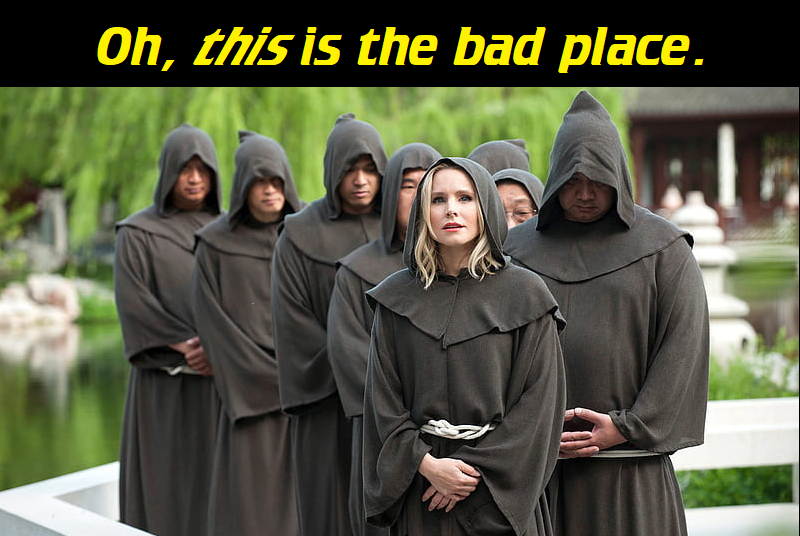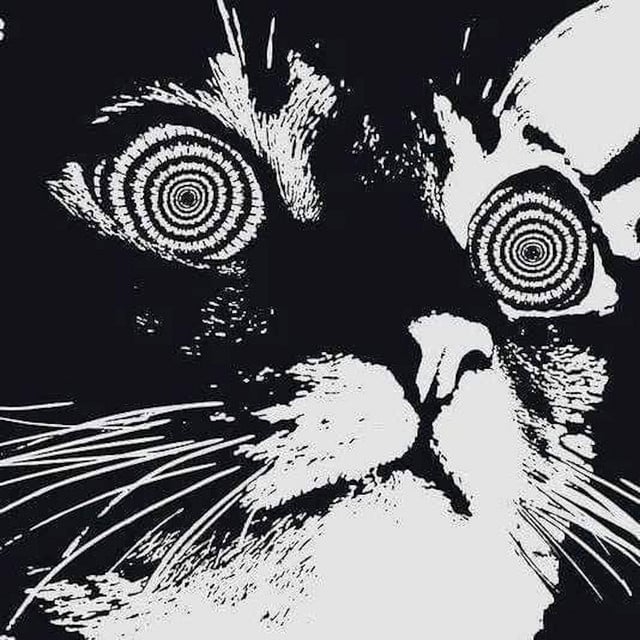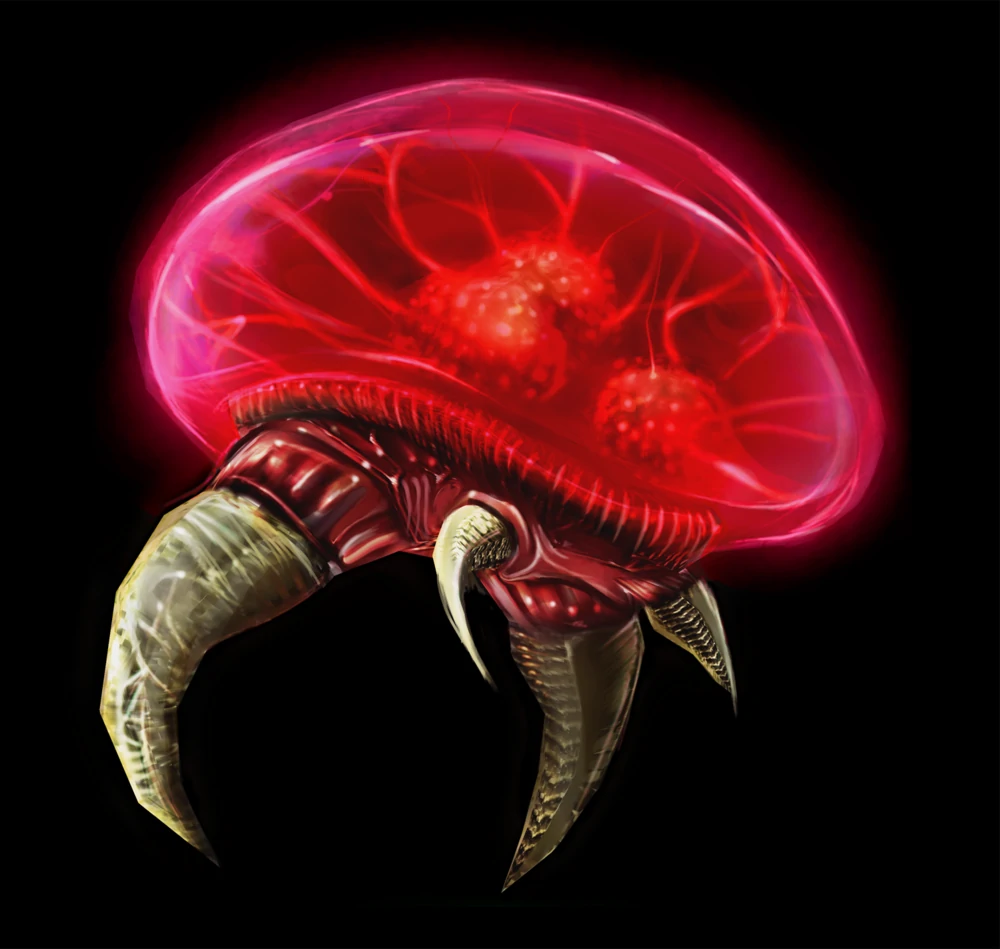I’m betting on just not existing anymore when we die.
No secrets. No magic kingdoms. We’ve already not existed before, I don’t see any reason why we wouldn’t just go back to that after.
Spending eternity going to church would be my own special form of hell.

100% agree. You mean I’m gonna have to listen to Brother Lampard ramble on about his experience living in Guatemala for the rest of eternity? I’ll be searching out the fire and brimstone out before the end of the first week.
There is no afterlife.
So don’t waste your precious time sitting in a pew feeling bad about yourself.
I wouldn’t be so sure. There might be, for all we know. But I agree there’s no point acting like there is, relying on it, as there might not be. And even if there is, it might well not be pleasant. Or reincarnation might be true.
I am pretty damn sure. Your brain, everything that makes you you, is a biological computer (for lack of a better word) of which we have an extremely comprehensive understanding of how it functions and the processes, both biological and psychological, that form a personality. There is no magic sauce or spirit that leaks out into the void when you die. It is your biological circuits ceasing to function and decaying.
I say this as someone who believed in an afterlife well into my late 20’s. It is a belief we tell ourselves to cope with the reality of our own mortality. We will die and there will be nothing, so we tell ourselves that maybe there will be something because it makes the pain easier to handle.
Maybe we are not done yet with understanding how our biological computer works.
On topics like this, I like to think about bacteria:
Before microscopes, it was unimagible to have little organisms on us and everywhere around us. People have been labelled crazy for believing that there is a whole small universe of organisms everywhere.
Then came microscopes, and suddenly everyone could see it for themselves.
What if we just don’t have the right tools to make our magic sauce, spirit, soul, whatever visible to us yet?
Oh for sure, that might be the case. But everything already written in some holy book or told in some ritual now definitely lacked those sophisticated machines, making all their content moot and you can safely disregard them.
So due to the lack of any information, you can’t prepare and therefore can’t expect anything. So it’s better to be good for its own sake, then trying to appease some bronze/iron age divinity.
It is not wrong nor necessarily bad to constantly question things and to desire to look deeper into information presented to you
But continued denial of something that is extremely well understood, studied, tested, and researched isn’t healthy skepticism - it’s wilful ignorance for the sake of soothing one’s fears.
The human brain (the brains of most creatures, really) is now better understood than it ever has been and new technology is making studying it easier and faster than ever before. At no point, past or present, has there ever been even a tiny minuscule sliver of anything even remotely similar to a soul or afterlife being detected or observed. What we have observed, however, are the parts of a brain that are responsible for emotions, memory, personality, logic, reasoning, etc dying and ceasing to function.
The brain is an extremely awesome and complex thing but it is not powered by magic. I am trying my best to not mean any disrespect here - like I said I believed in an afterlife well into my 20’s - but the entire premise of an afterlife is basically magic. It’s fantasy. It makes the crushing pain of our own death easier to deal with.
This is not “extremely well understood”. That is flat out misinformation. Your level of confidence on this is far beyond what any scientist or philosopher would admit.
It’s quite likely that our personalities and memories disappear upon death, since they are stored in the brain. But my consciousness, the subjective qualia of existence cannot arise out of physical matter. So what happens to that when my brain dies is a mystery.
What is the reasoning that you believe that your consciousness can’t arise out of physical matter?
Because I have a subjective experience of it. The mindless and mechanical interactions of particles may give rise to the emergence of complex thought processes that seem to be experiencing the world, but actually seeing red, hearing music, not just input process output - that can’t emerge from physical interactions of particles. It’s a fundamentally different kind of thing. LLMs can say they’re conscious, but if they actually are, it’s not because of a bunch of 1s and 0s inside a computer.
Because an LLM is just a bunch on Matrix calculations, it’s not the hardware it runs on. The maths already exists in theoretical space. Likewise, the more complex maths for neural interactions exists in theoretical space. If maths can create subjective experience, it shouldn’t need the maths to be actually describing a physical object, it should be enough for the maths to exist. So if maths does create consciousness, then any possible state that could be described mathematically is conscious, not just brains that exist in the physical world. If maths can’t create subjective experience, then something else must be creating that, which I call consciousness, and that I don’t understand at all.
That’s the physicalist perspective, but there are other perspectives, and the philosophical debate on physicalism vs dualism is far from settled.
Plus, our scientific understanding of consciousness is far from comprehensive. We still have no idea how our experience actually emerges from neurological activity.
We still have no idea how our experience actually emerges from neurological activity
You don’t. Science has a pretty decent idea.
The hubris and hypocrisy of this statement is confounding.
I mean, according to Revelation the faithful spend literally every moment on their knees locked in prayer venerating their god, so…
And call it heaven. Any type of eternity where there isn’t some opt-out clause is hell, even if it starts off great. One where your single job is to unendingly flatter the guy in the Bible? That’s hell from the start.
No mysteries left to ponder, just unending obligatory supplication. What bliss!
Scientology is the one true religion and anyone who hasn’t made it to at least Operating Thetan V gets set to an eternity long timeshare presentation.
People assume the universe has secrets. People assume the secrets are worth knowing. People assume the secrets can be understood without an advanced education in cosmology.
A lot of them are the same kind of people who don’t believe climate change is a hoax. You could convince them to believe that they could breathe cheese-wiz if their stupid God told them to.
I lean in favor of rebirth, but via naturalistic processes rather than projections of our own moral wants. I don’t need a supernatural explanation to recognize that whatever is most irreducibly “me” was born at least once. Why would I assume it would only be once?
If we follow from that premise, we can also chart a kind of probabilistic, umm, not karma but something not far off: If we’re reborn after death, how do we determine what kind of life our next one is going to be? Pretty obvious actually, just look at what kind of life everyone has already. If, for example, only 1% of humans have an especially good life, it looks like there’s a a really slim chance any one of us is going to be the one who gets to have that kind of life.
By contrast, 99% of humans are living in increasingly bad conditions, lower wages, higher prices and virtually every economic card stacked against us, as well as *gestures broadly*. It’s remarkably more likely that anyone would be reborn as a 99 percenter.
But why should we assume that we would only ever be reborn as a human? The total human population right now is 8.2 billion. There are estimated to be about 20 quadrillion ants in the world. And more than 44 billion animals have been bred into existence and slaughtered for food this year alone. Are you more likely to be reborn a human, an ant, or someone else’s property?
There’s a consequence here if rebirth is the law of the land. It would mean that death is not an escape after all. The only way to give yourself your best chance of a better next life would be to put in effort to make the world better for everyone. There is no way out, only through.
“I’d rather kill myself than go to heaven.” - Wm Murderface
Very relevant username.








